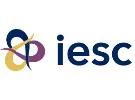Growers and shippers in the Dominican Republic are waiting optimistically for an action plan to help expand the USDA APHIS pre-clearance program and allow the country to ship additional commodities. Via the USDA-funded Trade Safe project administered by the nonprofit organization, Improving Economies for Stronger Communities, the final approval is on a new pre-clearance program for tomatoes, peppers, and cucumbers. “Dominican growers are staying patient and committed to this. They think that bell pepper exports will explode with this,” says Brian Rudert, director of TraSa Project, the trade safe project implemented by IESC and financed by USDA. “Most of the greenhouse production right now is domestic consumption, so it’s going to create an industry out there.”
The initiative stems from a five-year, $13.7 million TraSa project that is intended to improve the efficiency, coordination, and transparency of trade, commercialization, and safety of food and agricultural products. The agriculture and food sector is playing a growing role in the Dominican Republic--agricultural production and agro-industrial activity account for approximately 10.6 percent of the gross domestic product and 18.3 percent of the country’s exports. However, with that growth comes the need for more sophisticated sanitary and phytosanitary, and food safety systems to meet market requirements.
Select program Rudert says the work behind this initiative has been ongoing since 2021 and began with a cost-benefit analysis. “That showed that there are benefits to having a pre-clearance program and that they have the volume of production that can be taken advantage of,” he says. Initially, the country requested such a program for some 12 different products, but ultimately it was decided that it should be limited to tomatoes, cucumbers, and peppers.
Rudert says the work behind this initiative has been ongoing since 2021 and began with a cost-benefit analysis. “That showed that there are benefits to having a pre-clearance program and that they have the volume of production that can be taken advantage of,” he says. Initially, the country requested such a program for some 12 different products, but ultimately it was decided that it should be limited to tomatoes, cucumbers, and peppers.
Peppers are an item that particularly caught the eye of officials. “It’s probably the one product that gets the most attention from the border in the U.S. Usually it’s around the presence of thrips, and it’s expensive to fumigate it,” says Rudert, noting through the first quarter, 27 percent of all bell peppers from the Dominican Republic (exported during the last semester October 2022 to March 2023) had to be fumigated. However, just recently, the USDA ruled out fumigation as a control option in this expansion. “There will have to be some sort of control program in place to reduce the presence of pests. However, the use of ethyl bromide fumigation would not be allowed,” says Rudert. This largely applies to peppers, given tomatoes and cucumbers aren’t prone to these types of pest problems and experience hardly any detention issues.
Greenhouse pepper production
With fumigation ruled out, this likely leaves a greenhouse pepper production program. “There’s one co-op which has greenhouse peppers mainly, and there will be a smaller group of producers that can participate in this program,” Rudert says, noting this cooperative will be the local partner to the USDA.
For now, the Dominican Republic is awaiting an action plan on how to proceed with the program, one the country has agreed to fund and the costs of which largely involve hiring USDA inspectors in the Dominican Republic. “I think something could be put in place by the end of the year,” says Rudert. “To get the costs down, the idea is that the USDA could hire Dominicans as employees of APHIS, and they would be the inspectors.” This would be a similar system to the one in place in Jamaica’s pre-clearance program involving tropical yams.
 For more information:
For more information:
Peggy Aviotti
Improving Economies for Stronger Communities
paviotti@iesc.org
https://iesc.org/
